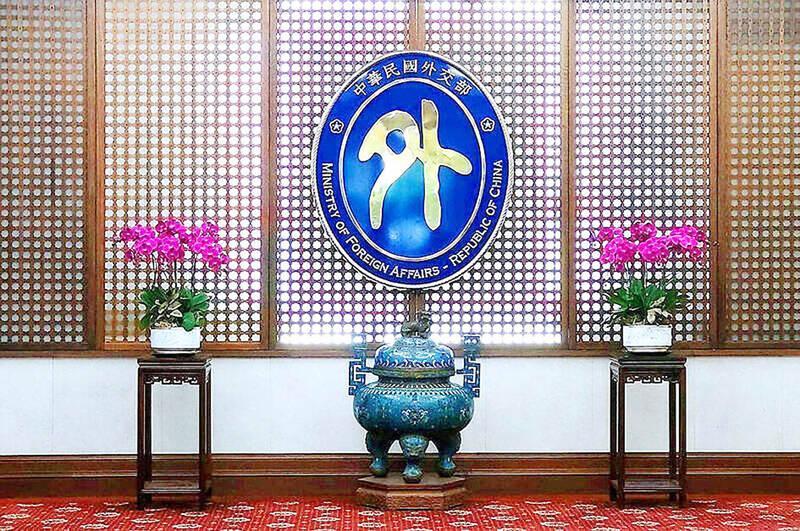The Ministry of Foreign Affairs (MOFA) today said that it has allocated a budget of NT$156 million (US$5.07 million) for the purchase of a property to house its representative office in Boston.
Currently, the Taipei Economic and Cultural Office in Boston is located in a rented building at 99 Summer Street.
In MOFA’s budget proposal for next fiscal year, it has allocated NT$156 million to buy a property at an undisclosed location in the Massachusetts state capital, pending approval of the budget by the Cabinet and legislature.

Photo: Yang Cheng-yu, Taipei Times
Department of General Affairs Director-General Chen Jin-ling (陳錦玲) told reporters today that in addition to Boston, the ministry plans to purchase properties in Houston and Denver to house its US representative offices.
MOFA is also looking to buy a property in Sydney, Australia, to house its representative office there, but has not yet identified a location, Chen told a MOFA news briefing.
The goal is to save taxpayers money that is spent on renting overseas offices, said Chen, whose department is responsible for buying or leasing space for such offices.
When MOFA owns the property in which its overseas offices are housed, it allows for the accommodation of other government bodies such as the Overseas Community Affairs Council, thus providing more convenient one-stop services to Taiwanese abroad, Chen said.
Currently, the ministry has 111 overseas offices, 19 of which are housed in properties owned by the government.
Since 2002, the ministry has been trying to buy properties for its overseas offices to save on rent.
In recent years, it has bought properties in Italy and in Los Angeles and San Francisco.

The first global hotel Keys Selection by the Michelin Guide includes four hotels in Taiwan, Michelin announced yesterday. All four received the “Michelin One Key,” indicating guests are to experience a “very special stay” at any of the locations as the establishments are “a true gem with personality. Service always goes the extra mile, and the hotel provides much more than others in its price range.” Of the four hotels, three are located in Taipei and one in Taichung. In Taipei, the One Key accolades were awarded to the Capella Taipei, Kimpton Da An Taipei and Mandarin Oriental Taipei. Capella Taipei was described by

The Taichung District Court yesterday confirmed its final ruling that the marriage between teenage heir Lai (賴) and a man surnamed Hsia (夏) was legally invalid, preventing Hsia from inheriting Lai’s NT$500 million (US$16.37 million) estate. The court confirmed that Hsia chose not to appeal the civil judgement after the court handed down its ruling in June, making the decision final. In the June ruling, the court said that Lai, 18, and Hsia, 26, showed “no mutual admiration before the marriage” and that their interactions were “distant and unfamiliar.” The judge concluded that the couple lacked the “true intention of

EVA Airways today confirmed the death of a flight attendant on Saturday upon their return to Taiwan and said an internal investigation has been launched, as criticism mounted over a social media post accusing the airline of failing to offer sufficient employee protections. According to the post, the flight attendant complained of feeling sick on board a flight, but was unable to take sick leave or access medical care. The crew member allegedly did not receive assistance from the chief purser, who failed to heed their requests for medical attention or call an ambulance once the flight landed, the post said. As sick

INDUSTRY: Beijing’s latest export measures go beyond targeting the US and would likely affect any country that uses Chinese rare earths or related tech, an academic said Taiwanese industries could face significant disruption from China’s newly tightened export controls on rare earth elements, as much of Taiwan’s supply indirectly depends on Chinese materials processed in Japan, a local expert said yesterday. Kristy Hsu (徐遵慈), director of the Taiwan ASEAN Studies Center at the Chung-Hua Institution for Economic Research, said that China’s latest export measures go far beyond targeting the US and would likely affect any country that uses Chinese rare earths or related technologies. With Japan and Southeast Asian countries among those expected to be hit, Taiwan could feel the impact through its reliance on Japanese-made semi-finished products and